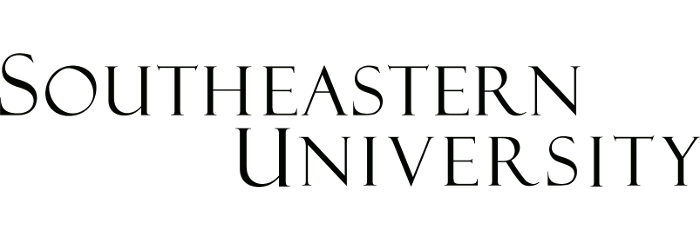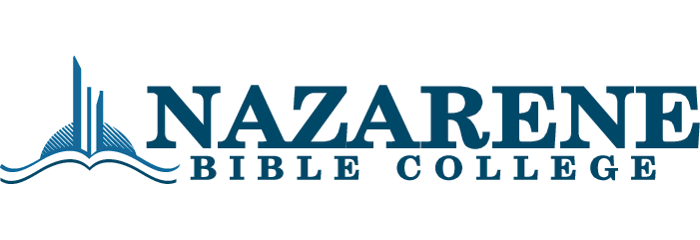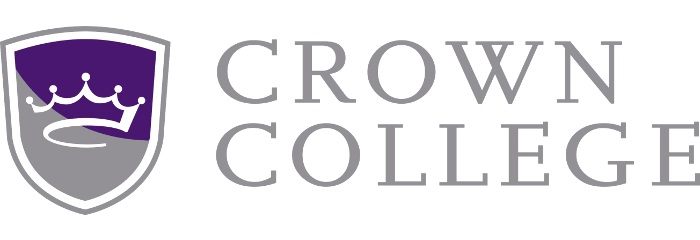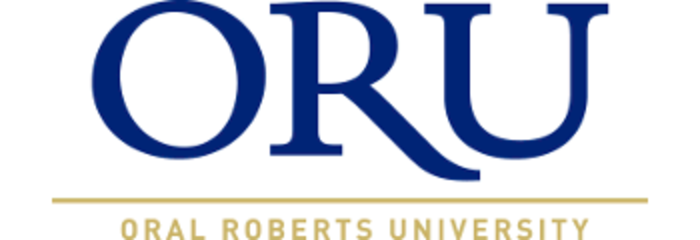2023 Best Online Christian Counseling Degrees
Online bachelor's programs in Christian counseling aim to equip students with biblical knowledge, compassion, and advising skills. Graduates may go on to earn an online master's degree in counseling, or they may choose to directly enter the workforce and find employment with religious organizations or nonprofits. It's important to understand that a bachelor's degree in Christian counseling does not lead to licensure as a substance abuse or mental health counselor.
View our methodology for more details about our list or learn more about OnlineU. Prospective students may also wish to review our list of online Christian colleges if they're interested in the flexibility and affordability of distance learning.
Learn more about how we make money. ">ADVERTISEMENT
Online Christian Counseling Bachelor's Degrees You May Be Interested In

Liberty University
Annual Tuition: $11,700
3 Programs (view all)
List Of Accredited Online Christian Counseling Schools
| School | Online Enrollment | Annual Tuition |
|---|---|---|
| Liberty University | ||
| Southeastern University | 947 | $26,620 |
| Nazarene Bible College | 696 | $10,080 |
| Crown College | 601 | $26,970 |
| Oral Roberts University | 501 | $30,070 |
| Houston Baptist University | 293 | $33,450 |
| The Master's University | 250 | $25,350 |
| Clarks Summit University | 238 | $26,082 |
| Luther Rice College & Seminary | 227 | $8,000 |
| God's Bible School and College | 147 | $7,150 |
| Johnson University | 134 | $16,920 |
| World Mission University | 133 | $6,440 |
| Calvary University | 92 | $11,164 |
| City Vision University | 70 | $6,000 |
| College of Biblical Studies-Houston | 34 | $9,870 |
| Davis College - NY | 32 | $17,150 |
| Shasta Bible College and Graduate School | 14 | $12,860 |
| Cairn University | 12 | $28,918 |
| Johnson University Florida | NA | $16,710 |
Liberty University
- Annual Tuition: $11,700
- Locations: Lynchburg (VA)
- Accreditation: SACS COC
Liberty University (LU) is a large, private university that focuses on "training champions for Christ." Through their online Bachelor of Science in Psychology - Christian Counseling, Bachelor of Science in Religion - Christian Counseling, and Bachelor of Science in Bible – Christian Counseling, LU prepares their students to work as case managers, church administrators, mental health services representatives, and lay ministry. Some of the core classes for these majors include Issues of Christian Counseling, Psychology & Christianity, Christian Counseling for Marriage & Family, and Biblical Theology. These programs require 120 credits and typically take three to four years to complete with a full-time schedule.
At LU, students use Blackboard to access their coursework, which is fully online and asynchronous. Online students have access to the university library and all student resources.
Southeastern University
- Annual Tuition: $26,620
- Locations: Lakeland (FL)
- Accreditation: SACS COC
Southeastern University (SEU) is a private, nonprofit faith-based institution offering an online Bachelor of Science in Ministerial Leadership - Pastoral Care and Counseling for students interested in working for churches or other faith-based organizations. Specifically, SEU is affiliated with the Assemblies of God. Graduating requires completing 120 credit hours, which generally takes four years of full-time attendance. SEU has a 43% acceptance rate and a 47% graduation rate.
SEU utilizes the Blackboard learning management system and Interactive Educational Television to deliver online coursework and instruction. Some examples of pastoral care and counseling online courses include Theories of Personality, Leading Team-Driven Organizations, Strategic Ministry, and Biblical Hermeneutics. Students must also complete two student ministry practicums locally to graduate. Possible careers include children’s pastor, evangelism and outreach coordinator, missions coordinator, and associate pastor.
Nazarene Bible College
- Annual Tuition: $10,080
- Locations: Colorado Springs (CO)
- Accreditation: HLC
Nazarene Bible College (NBC) is a private, nonprofit faith-based institution affiliated with the Church of the Nazarene. NBC offers an online Bachelor of Arts in Ministry - Counseling for Christian Ministries. While this program is distinctly remote, completing two weekend-intensive, face-to-face courses are required — one at the beginning and one at the end of the program. This 128-credit program may take full-time students at least four years to complete. Major coursework is completed in a cohort, so continuous attendance is necessary. NBC accepts 100% of applicants, and 20% of students graduate.
NBU delivers its online curriculum via its proprietary dCourseWeb learning management system. Distance learners in the online counseling for Christian ministries program enroll in courses such as Counseling and Christian Thought, Managing Change and Conflict, and Developmental Issues in Counseling. Students interested in elder or deacon ordination must complete an additional 26-29 credit hours to graduate.
Crown College
- Annual Tuition: $26,970
- Locations: Saint Bonifacius (MN)
- Accreditation: HLC
Crown College (CC) is a small, private institution that is also Christ-centered, emphasizing Christian philosophy in their programs. Their online Bachelor of Science in Psychology/Counseling and Bachelor of Science in Alcohol and Drug Counseling offer courses, such as Diversity Issues in Counseling, Crisis Intervention, and Statistical Counseling, and also require Christian Studies courses. The program consists of 125 credits and takes between three and four years with a full-time schedule. Graduates of the BS in Alcohol and Drug Counseling program are eligible for licensing in 31 states.
At CC, students use Canvas to access their coursework, which is entirely online and asynchronous. Online students can use all university resources.
Oral Roberts University
- Annual Tuition: $30,070
- Locations: Tulsa (OK)
- Accreditation: HLC
Oral Roberts University (ORU) is a medium-sized, private institution. ORU describes itself as "Holy Spirit-empowered," and this Christian emphasis shows in their online Bachelor of Arts in Christian Caregiving and Counseling. The program requires 124 credits and includes classes, such as Issues & Identity of the Caregiver, Crisis Intervention, and Pastoral Approaches to Counseling. With a full-time schedule, it takes between three and four years to graduate. Students go on to work as Chaplains, Missionaries, and Teachers, among other careers.
At ORU, students use Brightspace to access their coursework, which is entirely online and asynchronous. Online students have access to success coaches and all university resources.
Overview of Online Christian Counseling Degrees
Undergraduates in Christian counseling generally learn psychology, ethics, theology, and social sciences from the perspective of a particular faith tradition. Faculty design bachelor's curricula to teach counseling practices that are informed by Christian values so graduates can help treat clients with behavioral, relationship, and substance-use challenges.
As a faith-based discipline, students can only find Christian counseling programs at private religious schools, which limits the number of available online degrees. Most of these online programs feature asynchronous courses, meaning that students log in at convenient times to complete coursework, watch recorded lectures, interact with classmates, and submit assignments.
Program Requirements
To graduate, most Christian counseling students must complete 120-130 credit hours, which usually takes at least four years of full-time study. Most programs culminate in a capstone course requiring students to tie together what they've learned throughout their classes. In addition, some degrees feature an internship, allowing students to put their counseling skills to practical use.
Admission Requirements
Admission requirements for Christian counseling programs vary depending on the school or university. In most cases, online and in-person programs at the undergraduate level expect students to meet the following prerequisites:
- High school diploma or equivalent with a minimum 2.5 GPA
- SAT or ACT scores in the 50th percentile, although some schools are making this optional
- Letters of recommendation from teachers, mentors, and religious leaders describing the student's skills and abilities
- One or more personal essays that demonstrate the student's interest in a Christian counseling degree
Common Courses in a Christian Counseling Program
A Christian counseling degree fuses theology with psychology, so professors seek to increase students' proficiency with biblical principles, mental health diagnosis, empathy, and communication. Some Christian counseling programs offer concentrations, such as marriage and family counseling or substance use counseling, which can also be pursued as bachelor's programs at some schools. Similar programs are also available in psychology, philosophy, theology, or religious studies. Alternatively, students could pair their Christian counseling degree with one of these specializations as minors.
Below, we've listed several common courses to give prospective students a taste of what they might encounter during their Christian counseling studies:
Counseling with Christianity
This course often comes early in a degree sequence because it's intended to provide the rationale for Christian counseling. Students may learn how to interpret scripture for practical lessons, actively listen, and advise clients by exercising a Christian worldview.
Abnormal Psychology
Students seek to understand the spectrum of human psychology in this course so they can recognize and treat a range of mental illnesses. Lessons generally cover common mental illnesses and associated behavior, crisis intervention, treatment options, and the Bible's perspective on abnormal psychology.
Addiction Counseling
This course generally covers the biochemical underpinnings of substance abuse and addiction. Professors may lecture on the neurophysiological effects of various substances, the etiology of addiction, and the function of compassion in treatment.
Human Sexuality
Professors typically examine sexuality from biological, psychological, and biblical perspectives. Topics might include cultural and social norms, gender, sexual identity, and morality, all filtered through a religious lens.
Marriage and Family Counseling
This course is designed to cover biblical perspectives on spiritual formation and relationship dynamics within families. Lessons often emphasize counseling techniques for conflict identification and resolution between spouses, parents, children, and siblings.
How to Choose a Christian Counseling Program
One of the most important things to look for when selecting any college program is accreditation, which means that an independent agency attests to the quality of the school's instruction, faculty, and services. Many Christian colleges opt for accreditation through the Association for Biblical Higher Education Commission on Accreditation. Accreditation qualifies a college to accept federal financial aid. However, regionally accredited schools usually only accept transfer credits from colleges with the same type of accreditation. Students who plan to enroll in graduate studies should keep this in mind.
Individual degree programs in some disciplines can also earn accreditation. However, no agencies accredit bachelor's degrees in Christian counseling. The Council for Accreditation of Counseling and Related Education Programs (CACREP) accredits graduate-level degrees in several types of counseling but not Christian counseling programs or bachelor's programs of any kind. Students who want to be licensed professional counselors must attend a CACREP-accredited graduate program. However, they should be aware that admissions officers at these schools may not recognize academic credits earned during an undergraduate degree in Christian counseling, even if they come from an accredited school.
For students considering distance education, it may be important to determine whether an online counseling program offers learners sufficient resources. This may include regular check-ins with faculty and advisors, tutoring and library services, and 24/7 support to resolve any technical issues. Given that counseling programs often involve an in-person internship or practicum experience, students may also want to check whether an online program helps them identify and apply for programs at healthcare facilities to gain the required hours of clinical experience.
Funding an Online Christian Counseling Degree
Bachelor's degree students can pursue many forms of financial aid to help ease the burden of paying for college. The most important types — scholarships, grants, and work-study programs — are called gift aid because students don't need to repay them. These can come from the federal government, state governments, or private sources, most of which don't distinguish between online and on-campus learners. Most students take out loans to fund at least part of their degree, giving preference to lower interest federal and state loans.
Students who plan to enroll at an accredited school can begin their financial aid search by completing the Free Application for Federal Student Aid (FAFSA). The federal government, as well as most states and colleges, use a completed FAFSA form to determine a student's eligibility for financial aid. Some states have alternate financial aid forms for students with undocumented immigration status because these applicants won't qualify for federal funding.
Careers With a Christian Counseling Bachelor's Degree
Graduates with a bachelor's degree in Christian counseling often seek roles at faith-based organizations, including churches, non-profits, and private firms. But some employers might prefer to hire counseling applicants who are licensed by the National Association of Christian Counselors (NACC), which requires a graduate degree in the subject. Bachelor's graduates may still be able to secure non-counseling roles for these same faith-based employers.
Below, we examine some of the career paths that alumni might take.
Church counselors
Church counselors meet with individual parishioners or groups to hear their concerns about mental health, behavior, relationships, or substance use and help them make positive life changes. Employers expect counselors to offer solutions within the church's Christian moral framework.
Life coaches
Life coaches develop behavior-modification plans for clients who want to change their habits. Most life coaches are self-employed and either develop a roster of clients or consult with one or more parochial rehabilitation or residential care organizations. The International Coaching Federation offers life coach certifications for professionals in this field.
Non-profit organization counselors
Non-profit organization counselors provide services for domestic or international charities with a Christian mission. They may specialize in treating different populations — for example, trauma counseling after disasters or addiction counseling for clients who can't afford for-profit services.
Reliable salary and job outlook information is scarce for these jobs because the Bureau of Labor Statistics only collects information on licensed professional counselors.
Becoming a Christian Counselor
There are no set requirements to become a Christian counselor. As a religious discipline, the field isn't regulated by any government bodies, so individual employers can decide which qualifications they prefer.
The NACC offers licenses for Christian counselors who hold at least a master's degree, and this credential may improve a professional's employment prospects. Other organizations that offer Christian counseling certifications don't require candidates to hold a college degree, so their quality control may be less stringent.
Is a Christian Counseling Degree a Good Fit for Me?
A Christian counseling degree is a good fit for individuals who are genuinely interested in using evidence-based strategies to help people improve their lives. Such individuals may have a natural empathy for vulnerable persons and those facing difficult life circumstances or might find that they are able to support others by listening to their concerns and helping them find solutions. Additionally, a counseling degree may be a good option for students who possess talents in communication and collaboration, as well as those who are adept at building effective professional relationships.
FAQs About Christian Counseling Degrees
How Long Does It Take to Earn a Christian Counseling Degree?
Colleges design most bachelor's programs to last four years with full-time enrollment status. They may offer part-time options to online students, which may allow them to take fewer classes at a time, but it may take longer to complete. In practice, only 41% of all bachelor's degree students graduate in four years.
How Much Does an Online Christian Counseling Degree Cost?
Costs can vary widely among colleges, but the College Board's 2022 report states that the average annual tuition fee for four-year private schools is $39,400. You also need to consider the yearly cost of a school's fees, books, and supplies on top of tuition, which the College Board estimates will be $1,240. In general, online degrees are more affordable than their in-person equivalents, but private colleges cost more than public schools.
What Can You Do With a Bachelor's in Christian Counseling?
As a bachelor's graduate, you might work as a Christian counselor or life coach for a church, nonprofit, private firm, or private practice. You may also land a noncounseling job at a faith-based organization. Some employers may place less concern on the candidate's degree subject, and instead, they may welcome any college-educated candidate who shares an organization's values.
What Degree Do I Need to Be a Christian Counselor?
Because Christian counseling is unregulated, you can potentially start this role with only a bachelor's degree. You can also pursue a master's or doctoral program in this discipline, which would allow you to gain NACC certification.
Related Articles
2023 Best Online Master's in Counseling Degrees
View rankings of the best online master's degrees in counseling based on alumni salaries. Read on to learn about coursework, career options, and more.
By OnlineU Staff Writers | 2/6/2023




